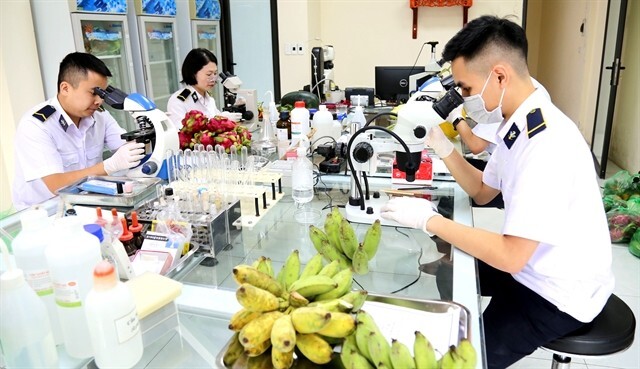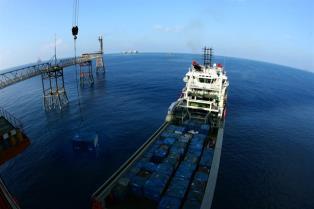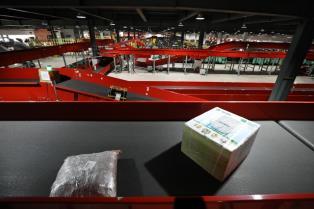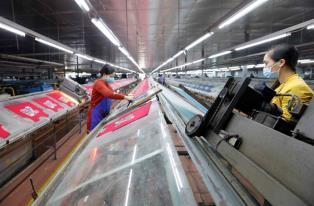China has reaffirmed its commitment to expand agricultural imports from Việt nam and support large-scale, high-quality investments between enterprises from both countries.
HÀ NỘI — Việt Nam and China must develop solutions to deepen agricultural cooperation to contribute to enhancing regional food security and build a resilient supply chain, a conference held by the Ministry of Agriculture and Environment was told on Wednesday.
The Việt Nam-China Trade Promotion Forum took place within the framework of the AgroViet2025, providing an important opportunity for associations and enterprises from both countries to exchange information, connect supply and demand, explore investment and technology transfer opportunities and promote green, safe, sustainable agriculture in line with global trends.
The ministry’s statistics showed that trade between Việt Nam and China has continued to expand rapidly, with bilateral revenue reaching US$205.2 billion in 2024 and $208 billion in the first 10 months of this year.
Việt Nam has become China’s largest trading partner in ASEAN and the fourth largest in the world.
Hoàng Văn Dự, Deputy Director of the ministry’s Agricultural Trade Promotion Centre said that Việt Nam has strengths in tropical agriculture with a wide range of high-quality products which are increasingly popular among global consumers. With a dynamic and fast-growing economy, the country is playing an increasingly important role in global food security and value chains, he stressed.
He added that agricultural trade between Viêt Nam and China has grown steadily, with many Vietnamese farm products now widely available in the Chinese market. In turn, Việt Nam imports agricultural machinery, fertilisers, and materials from China to support domestic production.
China has reaffirmed its commitment to expand agricultural imports from Việt nam and support large-scale, high-quality investments between enterprises from both countries, he said, adding that this creates significant opportunities for key Vietnamese export products such as fruit, cashew nuts, coffee and seafood to expand in the Chinese market.
With surging food demand across the Asia-Pacific region, which is projected to require at least 30 per cent more of output by 2030, Dự said that the two countries must promote the shift from small-scale border trade to formal, modern and sustainable agriculture cooperation.
Challenges remain, including limited border logistics and cold storage infrastructure, fragmented production, uneven quality and quality control capacity, together with a lack of integrated supply chain data, he said, however.
These challenges require both countries to enhance cooperation and adopt systemic solutions to develop a resilient and transparent agricultural ecosystem.
New spaces
To address the challenge, the ministry’s Department of Quality, Processing and Market Development called for stronger cooperation in logistics, technology, and standards harmonisation within the ASEAN–China framework, which aims to build a sustainable, transparent and technology-driven agricultural supply chain.
Trade promotion should continue to be enhanced to improve market understanding and facilitate trade. The two sides should also strengthen information exchange and technical collaboration on policy, quarantine, biosafety and product transport management.
Specifically, joint efforts should focus on developing cross-border value chains in deep processing, cold-chain logistics, e-commerce, and standardised raw material zones.
The department also proposed the establishment of Vietnamese farm produce distribution centres in China and processing zones in border regions.
With strong potential and close cooperation under the ASEAN–China framework, the two countries can build a modern, safe and sustainable agricultural supply chain that contributes to food security and shared prosperity in Asia, the department said. — VNS






